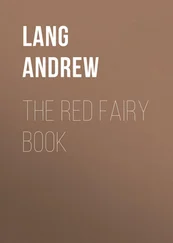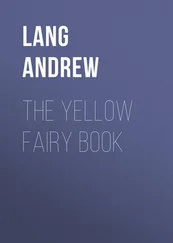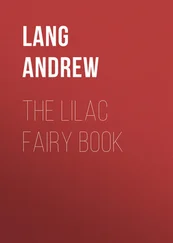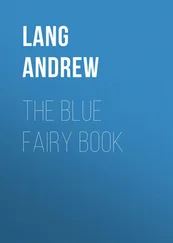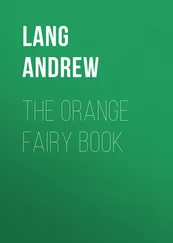Andrew Lang - The Red Romance Book
Здесь есть возможность читать онлайн «Andrew Lang - The Red Romance Book» — ознакомительный отрывок электронной книги совершенно бесплатно, а после прочтения отрывка купить полную версию. В некоторых случаях можно слушать аудио, скачать через торрент в формате fb2 и присутствует краткое содержание. Жанр: foreign_antique, foreign_prose, на английском языке. Описание произведения, (предисловие) а так же отзывы посетителей доступны на портале библиотеки ЛибКат.
- Название:The Red Romance Book
- Автор:
- Жанр:
- Год:неизвестен
- ISBN:нет данных
- Рейтинг книги:5 / 5. Голосов: 1
-
Избранное:Добавить в избранное
- Отзывы:
-
Ваша оценка:
- 100
- 1
- 2
- 3
- 4
- 5
The Red Romance Book: краткое содержание, описание и аннотация
Предлагаем к чтению аннотацию, описание, краткое содержание или предисловие (зависит от того, что написал сам автор книги «The Red Romance Book»). Если вы не нашли необходимую информацию о книге — напишите в комментариях, мы постараемся отыскать её.
The Red Romance Book — читать онлайн ознакомительный отрывок
Ниже представлен текст книги, разбитый по страницам. Система сохранения места последней прочитанной страницы, позволяет с удобством читать онлайн бесплатно книгу «The Red Romance Book», без необходимости каждый раз заново искать на чём Вы остановились. Поставьте закладку, и сможете в любой момент перейти на страницу, на которой закончили чтение.
Интервал:
Закладка:
Gunnar, who was sleeping in the narrow space above his great wooden hall, heard the awful sound, and said to himself: ‘So they have killed thee, Sam, my fosterling. Well, I will follow thee soon;’ and, taking his bill in his hand, he went up into the roof of the hall, where among the beams were little slits for windows. In the winter there were shutters fastened over these little slits, but now they were left open.
From the beam on which he was crouching Gunnar saw a red tunic slipping by the window, and he thrust swiftly out his bill. In a moment a man’s body fell upon the ground below.
‘Well, is Gunnar at home?’ said Gizur, and Thorgrim the Easterling answered: ‘Go and see for yourselves; but if Gunnar is not at home, his bill is,’ and those were his last words, for the thrust had been mortal.
It hardly seemed possible that one man could keep such a force at bay, but wherever they went Gunnar’s arrows followed them. Three times they came on, and three times they fell back, and Gunnar’s heart beat high, for he thought that perchance their courage might fail, and that they would return whither they had come.
‘One of their own arrows sticks outside the window,’ he said, laughing loud in his glee; ‘I will send it to kill its master.’ But his mother answered: ‘It is ill to waken a sleeping dog, my son.’
Her words were wise, but Gunnar would not listen to them. He shot the arrow into the midst of the men gathered beneath him, and knew not that it had dealt a death-blow, or that Gizur the white had been watching its course.
‘The arm that drew in that shaft had a ring on it – a gold ring such as Gunnar wears,’ said he, ‘and if they had not shot away their own arrows they would not be needing ours;’ and with that he urged them to make a fresh attack.
‘Let us set the house on fire,’ said Mord, but Gizur answered him hotly, and bade him find out some other plan.
Now Mord was a man of many thoughts, and great skill in planning, so he looked about him to see if there was aught else he could do. Lying near were some ropes, and as soon as he saw them he cried out, ‘If we can twist one end of the ropes round the beams, and the other round this rock, we can twist them tight, and pull the roof off the hall.’
And this was done; and when the roof fell down they beheld Gunnar standing on the beam, shooting arrows at his enemies.
At this Mord cried once more that the house should be burned, but the rest called shame on him, and then Thorbrand crept up on one side and cut Gunnar’s bowstring with his axe. But before he could reach the ground again Gunnar had seized his bill, and driven it through his body.
Then, without looking round, Gunnar said swiftly to Hallgerda his wife: ‘Let you and my mother cut off two locks of hair from your heads, and twist them into my bowstring, so that I may shoot at them once more.’
‘Does aught depend on it?’ she asked. ‘My life,’ he said; and Hallgerda made answer: ‘Do you remember that time when you struck me in the face?’ said she; ‘well, now you shall die for it.’
For many a day men sang of the fight which Gunnar made for his life and the numbers that he slew before he himself was struck down and slain.
‘We have laid low a great chief,’ said Gizur, ‘and many hearts will be sore because of his slaying. But, though his body is dead, his name shall live for ever.’
NJAL’S BURNING
Now, Valgard the Cunning was dying. And he sent for his son Mord and bade him stir up strife between Njal’s sons and their brother Hauskuld the priest, for he ever hated Njal, and longed to be avenged on him. So Mord fared to Hauskuld, and told him tales of what his brothers had said of him, but Hauskuld bade him begone, for he would listen to none of his stories. Then Mord left Hauskuld the priest, and had ready a long tale, how that Hauskuld had meant to burn them while they sat at a feast in Whiteness, had not Hogni, Gunnar’s son, come by. And as this plan had failed, he set about gathering his men together to slay his brothers as they rode home, but neither Grani, son of Gunnar, nor Gunnar, son of Lambi, had the heart to do it.
At first, neither Njal’s sons, nor Kari, who had married their sister, would give ear to Mord’s false words, but in spite of themselves ill-feelings began to spring up in their breasts towards Hauskuld.
Thus things went on for many months, and whenever Mord met one of Njal’s sons, or Kari, who had married their sister, he had new stories to tell them, till at length their hearts grew hot, and they determined that they would slay Hauskuld, lest perchance he might first slay them.
Hauskuld was sowing his corn when his brothers, and with them Mord, Valgard’s son, came up to kill him. Skarphedinn, Njal’s son, was their leader, and had bidden the rest each to give Hauskuld a wound. But the first blow dealt by Skarphedinn brought him on his knees, and he died praying that they might be forgiven for the ill they had brought on him, guiltless.
When he was dead they went home and told Njal what they had done.
‘It had been well if two of you had died and Hauskuld had lived,’ said Njal after he had heard the tidings, ‘for I know better than you what will be the end of this.’
‘And what will be the end?’ asked Skarphedinn.
‘My death, and yours, and your mother’s,’ answered Njal.
‘Shall I die also?’ he asked; but Njal shook his head.
‘Good fortune will ever be with you!’ he answered, and turned away and wept.
Now all men knew that at the next Thing a suit would be brought for the slaying of Hauskuld, and Njal and his sons made ready to fare to it, and to hear the award which should be given. But first sundry of Njal’s friends came to see him and offered to stand by him, and to set up their tents beside his, and among them were Gizur the white and Asgrim. And at the Thing an award was made, but was made void by a quarrel between Flosi, the friend of Hauskuld the slain, and Skarphedinn, and Njal and his sons returned home, and Njal’s heart was heavy.
‘Are you riding back to your wife?’ asked he of Kari, his son-in-law; and Kari made answer, ‘Whatever happens to you, happens to me!’ and they all stayed at Bergthorasknoll.
In the house dwelt an old, old woman, so old that she had nursed Bergthora, Njal’s wife, and she was wise and could see into the future. Njal’s sons laughed at her warnings, and took no heed to them, but for all that they knew well that it was often the truth she told them. One day Skarphedinn was standing outside the door, and the old woman came out with a stick in her hand, and she passed silently by him, and walked up the path to where a pile of dried shrubs lay above the house.
‘May a curse be upon you!’ she cried, shaking her stick over it; and Skarphedinn, who had followed after her, asked wherefore she was wroth with the pile.
‘Because with the fire lighted from this pile there will be a great burning,’ said she. ‘And Njal and his sons will be burnt, and Bergthora, my foster-child. So carry it away and scatter it in the water, or else set fire to it before your enemies can get here!’
‘What is the use of doing anything?’ answered Skarphedinn, ‘for if it is written that we should be burned, our foes will find some other fuel, though I were to scatter this stack to the four winds;’ and he went away laughing.
All through the summer the old nurse was ever begging Njal to do away with the stack of vetch, but the harvest was plentiful in the pastures and the men never came home save to sleep.
‘We can bring in that vetch stack any time,’ they said.
The harvest was stored in the barns, and a good harvest it was. There had been none such since the day that Gunnar had fared from Lithend with Kolskegg, and had returned to his ruin. One day, when Grim and Helgi, Njal’s sons, had ridden away to Holar to see their children, who were at nurse there, they heard strange tidings from some poor woman, that the country side was stirring and that bands of men were gathering together, and were seen riding along the same road.
Читать дальшеИнтервал:
Закладка:
Похожие книги на «The Red Romance Book»
Представляем Вашему вниманию похожие книги на «The Red Romance Book» списком для выбора. Мы отобрали схожую по названию и смыслу литературу в надежде предоставить читателям больше вариантов отыскать новые, интересные, ещё непрочитанные произведения.
Обсуждение, отзывы о книге «The Red Romance Book» и просто собственные мнения читателей. Оставьте ваши комментарии, напишите, что Вы думаете о произведении, его смысле или главных героях. Укажите что конкретно понравилось, а что нет, и почему Вы так считаете.


